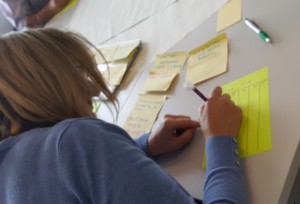

Latest research and knowledge exchange news at Bournemouth University


PhD and MSC students! Are you looking to develop additional laboratory skills or about to undertake your own research work? Then now is your chance to get involved in some upcoming short courses at Liverpool Science Park. By working in a laboratory setting, these courses give you a chance to attain or further practical skills. With a high staffing level, this doesn’t just bring a wealth of experience, this also gives you a chance to discuss, interact and ask questions with researchers working both in academia and within the field. Please see below and follow the links for more information on how to book.
24 September- Discovering Practical Microbiology
30 September- Laboratory Skills
1 October- Introduction to Mammalian Cell Culture
3 October- Practical Skills in Drug Discovery
8 October- Genomics and Bioinformatics
5 November- Skills in Analytical Science
Accommodation? They’ve got you covered with bed and breakfast available for £32-£47 a night at Hatters Hostel
For more information email BioGrad.

The following is a snap-shot of funding opportunities that have been announced. Please follow the links for more information:
ESRC
New & Emerging Forms of Data – Policy Demonstrator Projects
The ESRC is pleased to invite Expressions of Interest for New and Emerging Forms of Data – Policy Demonstrator Projects under Phase 3 of the Big Data Network.
Maximum Award: £25,,000 Deadline: 14 October 2016
Royal Society of Chemistry
Researcher Mobility Grants
Researcher Mobility Grants support PhD students and early career researchers to undertake short to mid-term scientific visits to overseas or UK organisations.
Maximum Award: £7,500 Deadline: 31 October 2016
NERC
Engaging the UK public with big issues of environmental science
NERC is inviting proposals under this programme for public engagement projects costing up to £20k that must be delivered between January and end of March 2017.
Maximum Award: £220,000 Deadline: 3 November 2016
BBSRC
Brazil partnering awards
Funds can only be used for travel, subsistence and other activities, such as workshops or exchanges. They are not to fund salary costs, consumables, items of equipment or other research costs, nor to link ongoing single collaborative projects
Maximum Award: £50,000 over 4 years Deadline: 17 November 2016
China partnering awards
As above, for China.
Maximum Award: £30,000 over 4 years Deadline: 17 November 2016
European partnering awards
As above, for Europe.
Maximum Award: £20,000 over 12 – 18 months Deadline: 17 November 2016
If you are interested in submitting to any of the above calls you must contact your RKEO Funding Development Officer with adequate notice before the deadline.
For more funding opportunities that are most relevant to you, you can set up your own personalised alerts on Research Professional. If you need help setting these up, just ask your School’s/Faculty’s Funding Development Officer in RKEO or view the recent blog post here.
If thinking of applying, why not add notification of your interest on Research Professional’s record of the bid so that BU colleagues can see your intention to bid and contact you to collaborate.

Congratulations to Prof. Ann Brooks in FHSS on the publication of her latest book Genealogies of Emotions, Intimacies and Desire: Theories of Changes in Emotional Regimes from Medieval Society to Late Modernity. The book has a Foreword by David Konstan (NYU) and it is published by Routledge.
 Congratulations to colleagues on the recently funded project “Human Henge: Historic landscapes and mental health at Stonehenge”. This research led by the Restoration Trust. The project has been funded by the Heritage Lottery Fund, English Heritage Trust and Wiltshire County Council and has multiple partners and contributors including Wiltshire County Council, Richmond Fellowship, English Heritage Trust and Bournemouth University. From BU, Prof Tim Darvill (Director Centre of Archaeology, Faculty of Science & Technology) and Dr Vanessa Heaslip (Faculty of Health & Social Sciences) are engaged in this project.
Congratulations to colleagues on the recently funded project “Human Henge: Historic landscapes and mental health at Stonehenge”. This research led by the Restoration Trust. The project has been funded by the Heritage Lottery Fund, English Heritage Trust and Wiltshire County Council and has multiple partners and contributors including Wiltshire County Council, Richmond Fellowship, English Heritage Trust and Bournemouth University. From BU, Prof Tim Darvill (Director Centre of Archaeology, Faculty of Science & Technology) and Dr Vanessa Heaslip (Faculty of Health & Social Sciences) are engaged in this project.
The Human Henge research project is a therapeutic sensory experience of Stonehenge for two facilitated groups, each of up to 16 local people with mental health problems, plus carers, support workers, volunteers and staff. Over ten weekly three-hour sessions, one at night, each group walks the landscape, reaching through time to other humans whose traces are illuminated by accompanying pre-historians, curators and artists. Individual experiences cohere in a shared spoken epic which is augmented from session to session. The groups arrive inside the Stone Circle near the winter solstice and spring equinox; collaborating with their chosen artist, they decide what they do there.
Congratulations!
Prof. Edwin van Teijlingen
CMMPH
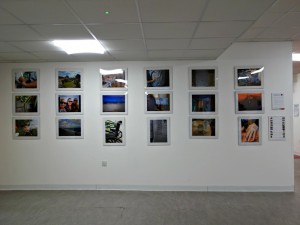 From 12 September, the Centre for Excellence in Learning (CEL) is holding a photo exhibition in Poole House, next to the Cash Office. This exhibition is part of the ‘Students who bounce back’ project, a study funded by Bournemouth University’s Fair Access Agreement Management Group. The study is being conducted by researchers at CEL, in co-production with student carers*.
From 12 September, the Centre for Excellence in Learning (CEL) is holding a photo exhibition in Poole House, next to the Cash Office. This exhibition is part of the ‘Students who bounce back’ project, a study funded by Bournemouth University’s Fair Access Agreement Management Group. The study is being conducted by researchers at CEL, in co-production with student carers*.
The photographs displayed in the exhibition were taken by student carers as part of a photodiary exercise. Some of them also came to the University this week to formally launch the exhibition.
‘Students who bounce back’ has the following objectives:
The exhibition will be on display for six weeks. For more information about the project, email Jacqueline Priego.
*A carer is defined as anyone who cares, unpaid, for a family member who, due to illness, disability, a mental health problem or an addiction, cannot cope without their support.
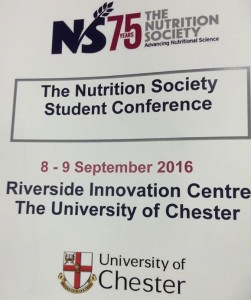 Mr. Jib Acharya presented at The Nutrition Society Student Conference in Chester last week. He presented from his PhD work Healthy eating among mothers in Nepal: A qualitative exploration, which is supervised by Dr. Jane Murphy, Dr. Martin Hind and Prof. Edwin van Teijlingen. His thesis found that mothers in Nepal misunderstand the role of healthy eating to combat nutritional problems in their children. Often their beliefs and attitudes can result in the improper feeding of young children which can lead to several complications, particularly in pre-school-aged children. There is a growing quantitative research on nutrition in Nepal but very little qualitative research. Therefore, as part of his mixed-methods study Jib explored food knowledge, beliefs and attitudes, and behaviour of mothers related to feeding preschool aged children and their perceptions of key barriers to healthier eating.
Mr. Jib Acharya presented at The Nutrition Society Student Conference in Chester last week. He presented from his PhD work Healthy eating among mothers in Nepal: A qualitative exploration, which is supervised by Dr. Jane Murphy, Dr. Martin Hind and Prof. Edwin van Teijlingen. His thesis found that mothers in Nepal misunderstand the role of healthy eating to combat nutritional problems in their children. Often their beliefs and attitudes can result in the improper feeding of young children which can lead to several complications, particularly in pre-school-aged children. There is a growing quantitative research on nutrition in Nepal but very little qualitative research. Therefore, as part of his mixed-methods study Jib explored food knowledge, beliefs and attitudes, and behaviour of mothers related to feeding preschool aged children and their perceptions of key barriers to healthier eating.
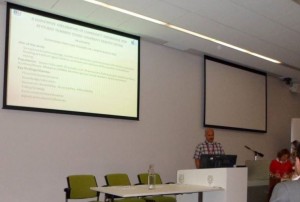
Using seven focus groups with four pharmacists, seven policy-makers, eleven health workers, five spiritual healers, seven Auxiliary Nurse midwives, seven mothers participating in a mothers’ group, and nine social workers. A thematic approach was performed for data analysis. Relevant quotes are presented. His qualitative thematic analysis revealed the following themes: poverty, education level, strong cultural beliefs, family size, household income, time and a growing preference for fast food. This particular presentation at the University of Chester highlighted the themes related to culture and societal behaviour.
Well done!
Prof. Edwin van Teijlingen
The Faculties have requested, through the Deputy Deans of Research & Professional Practice (DDRPPs), that RKEO provide support targeted to achieve their research strategies. To aid in this, it has been agreed that, as part of the internal approvals process for bids involving external funding, the following shall become mandatory:
To implement the DDRPPs’ decision, RKEO has taken the opportunity to produce a more easy-to-use, streamlined ITB form to be used across all Faculties, with an Annexure for Quality Approval (A-QA) that is customised for each Faculty.
The ITB form and A-QAs will shortly be uploaded onto the Staff Intranet for download and use.
The RKE Bid Timeline and RKE Sample Costs documents on the same Staff Intranet page will also shortly be updated for reference.
RKEO’s Funding Development Team is available to provide pre-award support and their contact details can be found on the Research Blog. Should you have any difficulty in accessing the documents on the Staff Intranet, please request them from us and we will send you a copy.
Due to various staff movements and other exigencies of the workplace, the original team of Funding Development Officers which previously comprised 4.2 FTE to support the 4 Faculties is currently comprised of 2.4 FTE. For optimal support of your application and to aid in workload management, it is of particular importance that a completed ITB form and A-QA be lodged with RKEO at the earliest opportunity, ideally 3 weeks before the submission deadline.
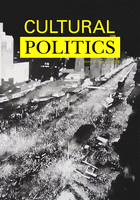 Congratulations to FHSS Prof. Ann Brooks on her latest academic article in the July issue of Cultural Politics. The article ‘The Cultural Production of Consumption as Achievement’ is co-authored with Lionel Wee.
Congratulations to FHSS Prof. Ann Brooks on her latest academic article in the July issue of Cultural Politics. The article ‘The Cultural Production of Consumption as Achievement’ is co-authored with Lionel Wee.
The Cultural Production of Consumption as Achievement Cultural PoliticsCultural Politics (2016) 12 (2): 217-232
doi 10:10.1215/17432197-3592112
The following funding opportunities have been announced. Please follow the links for more information. 
Engineering and Physical Sciences Research Council
The Engineering and Physical Sciences Research Council, via the Global Challenges Research Fund, invites applications for its call on Tackling global development challenges through engineering and digital technology research. The aim of this activity is to support an internationally leading programme of research, centred around engineering and digital technologies, to tackle the challenges faced by the developing world. Exemplar areas are given under each heading below, but these should not be seen as exclusive. Proposals may also span both headings: 1) Tackling global development challenges through engineering research- Sustainable infrastructure development, Engineering for disaster resilience, Engineering for humanitarian aid; 2) Tackling global development challenges through digital technology research- Access to digital services, Use of data for vital services, Secure and trusted digital infrastructures. The proposed research must be predominantly in EPSRC remit, although interdisciplinary and/or multidisciplinary proposals are welcomed.
Maximum award: Not specified. Closing date: 15/11/16.
The Engineering and Physical Sciences Research Council invites applications for its First Grant scheme. The scheme helps new academics apply for research funding at the start of their careers. Applicants must have been appointed to their first academic lecturing appointment, which involves lecturing and administration alongside research, in a UK university within the previous 36 months, or still be in the probation period of their new appointment. They must also have completed their PhD or an equivalent professional qualification within the last 10 years.
Maximum award: £100,000. Closing date: No deadline.
Innovate UK
Innovate UK invites applications for its connected and autonomous vehicles competition 2. Projects must be business led and should provide technical solutions for connected and autonomous vehicle features that provide real-world benefits to users. This includes how these vehicles will work as part of a wider transport system. The commercial benefit should clear in proposals. This competition is in 4 streams: Stream 1 will fund a large-scale challenge to develop and demonstrate a vehicle operating at SAE level 4 automation. It is expected that the fund will support a single project or 2 projects maximum of between £15 million and £30 million each. Projects should last between 18 and 30 months. Streams 2, 3 and 4 will fund feasibility studies and industrial research and development projects on connected and autonomous vehicles. Projects are expected to range in size from total costs of £250,000 to £5 million. Projects should last between 12 and 30 months.
Maximum award: Not specified. Closing date: 02/11/16.
Medical Research Council
The Medical Research Council invites applications for its Confidence in Concept scheme. This scheme aims to accelerate the transition from discovery science to the early stages of therapeutic/biomarker development by providing locally-administered, responsive and flexible funding to support preliminary translational work. The award can be used flexibly by the institution to support a number of preliminary-stage translational projects. The projects supported should aim to provide sufficient preliminary data to establish the viability of an approach –– before seeking more substantive funding
Maximum award: £1.2 million. Closing date: 15/11/16.
The Medical Research Council invites applications for its Proximity to Discovery – Industry Engagement Fund. The scheme is designed to provide flexible funding for innovative ways to enable the initial development of academic-industry collaborations. Short term people exchanges between industry and academia are seen as a key way of exchanging skills and knowledge and developing a longer term working relationship. Proximity to Discovery: Industry Engagement Fund can be used for people and knowledge exchange at the very earliest stage of a collaboration and may not necessarily be aligned to a specific project objective. Examples of potential uses include: People exchange that allow for an exchange of skills or knowledge which will enable new collaborative projects to develop; People exchanges between Technology Transfer Offices in Universities and Business Development teams in industry, where the placement will enhance the understanding of each other’s business model and allow them to better support their organisation to develop medical research collaborations with industrial partners; Other creative ways to encourage new collaborations or two-way people exchange to increase the permeability between industry and academia; Projects that would enhance academic understanding of industry or vice versa; Showcases/workshops which enabling Universities to develop relationships with potential industry partners.
Maximum award: £250,000. Closing date: 15/11/16.
Royal Academy of Engineering
The Royal Academy of Engineering, in partnership with the Leverhulme Trust, invites applications for its Senior Research Fellowships. The fellowships allow academics to concentrate on full-time research and be relieved of teaching and administrative responsibilities. The purpose of the Fellowships is to cover the salary costs of a replacement academic who will take over the awardee’s teaching and administration duties for up to one year. A support fund of up to £2,500 is also available to the awardee to cover miscellaneous research costs, such as conference attendance and public engagement activities.
Maximum award: Not specified. Closing date: 19/10/16.
Royal Society
The Royal Society invites proposals for its scientific meetings, which offer the opportunity to present an international, two day conference. The call is open to UK based researchers in any field and the discussion throughout the meeting should allow everyone, at any stage of their career, to be involved in the conversation. The award will cover administrative support, a contribution towards speaker, organiser and chair travel expenses and accommodation, logistical support, materials for the meeting, venue, facilities and catering.
Maximum award: Not specified. Closing date: 30/9/16.
The Royal Society invites proposals for its Science+ and Fast Track Discussion meetings. These meetings Bring together scientists from around the world to present and discuss new research in all areas of science. Each meeting is organised by leaders in the field, using their expertise to ensure the key topics are covered. The focus on discussion throughout the meeting allows everyone, at any stage of their scientific career, to get involved in the conversation. The programme offers a unique opportunity to present an international, two-day conference, with the chance for publication in Philosophical Transactions of the Royal Society following the event.
Maximum award: Not specified. Closing date: 30/09/16.
Royal Society of Edinburgh
The Royal Society of Edinburgh, in collaboration with the Biotechnology and Biological Sciences Research Council, invites applications for the BBSRC Enterprise Fellowships. The aim of this scheme is to increase exploitation of ideas with commercial potential from BBSRC supported research. The Enterprise Fellowships are designed to enable an individual to advance the commercialisation of existing research results or technological developments and are tenable for a period of one year within a UK HE or similar academic institution. The Fellowships enable the holder to concentrate on developing the commercial potential of their research, whilst also receiving formal training in relevant business skills.
Maximum award: Not specified. Closing date: 19/11/16.
Wellcome Trust
The Wellcome Trust and the National Institutes of Health invite applications for their Four-year PhD Studentships. This scheme offers postgraduate students collaborative PhD training at academic laboratories in the UK or Republic of Ireland and at the National Institutes of Health in the USA. Students usually spend half their time at an academic organisation in the UK/Republic of Ireland and the other half of their time at the National Institutes of Health (NIH) campus at Bethesda (Maryland, USA). Applicants should have a first class degree or 2:1 (or the European Economic Area equivalent), or be in their final year and predicted to get a first class degree or 2:1. Applicants must also be UK or EEA nationals.
Maximum award: Not specified. Closing date: 07/11/16.
If you are interested in submitting to any of the above calls you must contact RKEO with adequate notice before the deadline. Please note that some funding bodies specify a time for submission as well as a date. Please confirm this with your RKEO Funding Development Officer.
You can set up your own personalised alerts on Research Professional. If you need help setting these up, just ask your School’s/Faculty’s Funding Development Officer in RKEO or view the recent blog post here. If you are thinking of applying, why not add an expression of interest on Research Professional so that BU colleagues can see your intention to bid and contact you to collaborate.
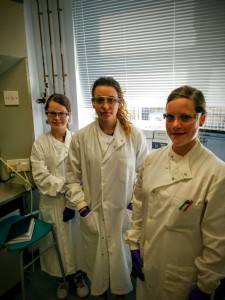 During the last 4 weeks, Sophie and Rose (left and middle in the picture), two AS level students, have spent their summer holidays gaining hands-on laboratory research experience at BU during their Nuffield Research Placement. Together with Dr Simon Dyall and PGR Isabell Nessel (right in the picture), they have worked on a research project which is investigating ways to increase the intake of omega-3 and omega-6 polyunsaturated fatty acids in preterm infants. Rose and Sophie have been helping to develop and validate a method to measure the fatty acid content of preterm formula milks by using gas chromatography (see picture).
During the last 4 weeks, Sophie and Rose (left and middle in the picture), two AS level students, have spent their summer holidays gaining hands-on laboratory research experience at BU during their Nuffield Research Placement. Together with Dr Simon Dyall and PGR Isabell Nessel (right in the picture), they have worked on a research project which is investigating ways to increase the intake of omega-3 and omega-6 polyunsaturated fatty acids in preterm infants. Rose and Sophie have been helping to develop and validate a method to measure the fatty acid content of preterm formula milks by using gas chromatography (see picture).
“As for the internship, I enjoyed it a lot. It was nice getting out of the classroom and working on something that had the potential to help people. I learnt a lot of new skills that’ll help me when I’m writing my application for university as it will show that I already have experience in a laboratory as well as give me a head start to any laboratory work I do in my degree. It’s shown that things often don’t go as smoothly as planned and you have to do a lot of problem solving and repeating along the way, but it’s also made clear to me that I do want to head in the direction of research in the future.” – Sophie
“This is the first year BU has offered Nuffield Research Placements and Sophie and Rose have been excellent students. The Placements give students the opportunity to get hands-on experience of working in a research environment, meet new people and learn new skills, and importantly help them decide if a degree in a STEM (Science, Technology, Engineering and Mathematics) subject is right for them. It has been a pleasure to host Sophie and Rose this year, and they have been of great help to our work.” – Simon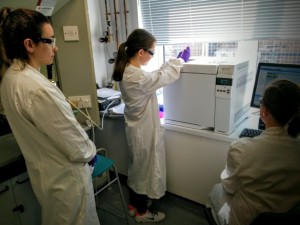
“For me it was an excellent opportunity to develop my mentoring skills, get the chance to inspire younger students for a career in research, and getting some extra helping hands for my project. The girls were eager to learn and motivated for the lab work and I wish them all the best for their studies. Overall, it was a nice experience which I would recommend to other PGRs and their supervisors.” – Isabell
Many thanks to Sophie and Rose for their help and to the Nuffield Foundation for the organisation of the placements!
The Nuffield Foundation offers Nuffield research placement for motivated students during the summer holidays to discover what a career in STEM might look like. If you would wish to find more about the program or think of offering a placement yourself next year please click here.
If you would like to learn more about our research, please feel free to contact me at inessel@bournemouth.ac.uk
Isabell
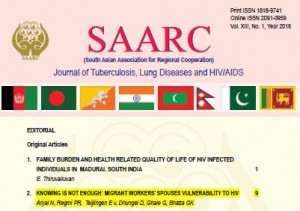 Congratulations to FHSS’s Dr. Pramod Regmi on the publication of his latest paper in the SAARC Journal of Tuberculosis, Lung Diseases and HIV/AIDS under the title ‘Knowing is not enough: Migrant workers’ spouses vulnerability to HIV’ [1]. The paper was specifically highlighted in the editorial of the journal’s latest edition.
Congratulations to FHSS’s Dr. Pramod Regmi on the publication of his latest paper in the SAARC Journal of Tuberculosis, Lung Diseases and HIV/AIDS under the title ‘Knowing is not enough: Migrant workers’ spouses vulnerability to HIV’ [1]. The paper was specifically highlighted in the editorial of the journal’s latest edition.
Prof. Edwin van Teijlingen
CMMPH
Reference
The following funding opportunities have been announced. Please follow the links for more information.
Biotechnology and Biological Sciences Research Council
BBSRC and the MRC, under the Global Challenges Research Fund, invite expressions of interest for their call for Networks in Vector Borne Disease (VBD) Research. This call forms part of BBSRC’s and MRC’s activities under the Global Challenges Research Fund (GCRF) (see related links) and therefore requires Networks to address VBD challenges primarily relevant to the health or prosperity of Low and Middle Income Countries on the Organisation for Economic Co-operation and Development (OECD) DAC List. The funders aim to support multidisciplinary Networks which foster collaboration, facilitate wider cross-disciplinary integrative participation (including environmental and social science research) and build capability which together will contribute to and underpin the development of novel strategies to control VBD of plants, animals and humans. Five key research priorities have been identified: Development of new control strategies for VBD in particular non-chemical vector control methods such as genetic control; Increased understanding of fundamental vector biology and vector ecology; Understanding what is driving the emergence and expansion of VBDs; Increased understanding of vector pathogen interactions; Improved diagnostics, surveillance and forecasting.
Maximum award: Not specified. Closing date: Expressions of interest 4pm, 03/11/16.
British Academy
British Academy, in collaboration with the São Paulo Research Foundation (FAPESP), the National Council for the State Funding Agencies (CONFAP) and the State Funding Agencies (FAPs) in Brazil, and the Academy of Medical Sciences, the Royal Academy of Engineering and the Royal Society in UK, under the Newton fund programme, invites applications for its Fellowship and Young Investigator awards. In the State of São Paulo, the call is open for UK visiting researchers to visit research groups in São Paulo. FAPESP will also offer an opportunity for young investigators from the UK to start a research career in a university or research institution in the State of São Paulo through its Young Investigator Awards. The UK Academies will also offer Newton International Fellowships and Newton Advanced Fellowships to the Brazilian research community, covering the fields of natural sciences, social sciences and humanities, and medical (including clinical and patient-orientated research) sciences. Mobility grants will also be offered to the Brazilian research community, covering the fields of natural sciences, social sciences and humanities, and engineering.
Maximum award: Not specified. Closing date: 12pm (Brazil time), 24/10/16.
Engineering and Physical Sciences Research Council
EPSRC, on behalf of the RCUK Energy Programme (RCUKEP), invites applications for the DoE NEUP programme. In particular the RCUKEP will support the UK component of proposals including US/UK collaboration in the following specific areas: Radioisotope Retention in Graphite and Graphitic Materials; Materials Ageing and Degradation; Reactor Safety Technologies; Materials Recovery; Advanced Waste forms; Advanced Fuels ; Used Nuclear fuel disposition: Disposal; Nuclear Energy Advanced modelling and simulation.UK applicants wishing to engage in this programme should liaise directly with their US partners. Appicants must submit an expression of interest (pre-applications), which shoulbe be submitted by the US partners to the DoE.
Maximum award: Not specified. Closing date: Pre-aplications 14/09/16.
Medical Research Council
MRC and the ESRC invite applications for their Skills Development Fellowships, which enable early-career researchers to develop new skills in a priority area as well as researchers at all career stages willing to transform their career. The scheme currently invites proposals that focus on any of the following priority areas within a UK and/or global health context: Quantitative Skills – covering mathematics, statistics, computation and informatics applicable to any biomedical or health related data sources, from molecular to population level. These skills can be applied across the full range of the MRC’s remit, for example, cell biology, physiology, epidemiology, population and public health, and health psychology; Skills at the social science interface – with a focus on areas of health economics and/or mixed methods research.
Maximum award: Not specified. Closing date: 14/06/17.
Natural Environment Research Council
NERC invites application for its Follow-on Fund Pathfinder awards, which enable researchers to develop projects that will realise the commercial potential of NERC-funded research via a combination of complementary technical and commercial engagement work programmes. Pathfinder awards are designed to fill knowledge gaps via activities such as market assessment and competitor analysis, intellectual property searches, engaging with potential commercial collaborators and end-users, and ‘milestone 1’ technical work where the technical feasibility of the whole project depends on it. The fund is open to researchers with current or past NERC funding. Proposals for Follow-on support must build on the outputs of recent or previous NERC-funded research activity.
Maximum award: £20,000 (80% fEC). Closing date: 4pm, 27/09/16.
The Royal Society
Royal Society, in collaboration with the EPSRC and Rolls-Royce, invites applications for its Industry Fellowships. The Fellowships are for academic scientists who want to work on a collaborative project with industry and for scientists in industry who want to work on a collaborative project with an academic organisation. The scheme aims to enhance knowledge transfer in science and technology between those in industry and those in academia in the UK.
Maximum award: Not specified. Closing date: 29/09/16.
Royal Society and the National Natural Science Foundation of China invite applications for the cost-share programme of their International Exchanges scheme. This scheme is for scientists in the UK who want to stimulate new collaborations with leading scientists overseas through either a one-off visit or bilateral travel. The scheme covers all areas of the life and physical sciences, including engineering, but excluding clinical medicine.
Maximum award: £12,000. Closing date: 10/10/16.
Royal Society and the Taiwan Ministry of Science and Technology (MOST) invite applications for the cost-share programme of their International Exchanges scheme. This scheme is for scientists in the UK who want to stimulate new collaborations with leading scientists overseas through either a one-off visit or bilateral travel. The scheme covers all areas of the life and physical sciences, including engineering, but excluding clinical medicine.
Maximum award: £12,000. Closing date: 10/10/16.
If you are interested in submitting to any of the above calls you must contact RKEO with adequate notice before the deadline. Please note that some funding bodies specify a time for submission as well as a date. Please confirm this with your RKEO Funding Development Officer.
You can set up your own personalised alerts on Research Professional. If you need help setting these up, just ask your School’s/Faculty’s Funding Development Officer in RKEO or view the recent blog post here. If you are thinking of applying, why not add an expression of interest on Research Professional so that BU colleagues can see your intention to bid and contact you to collaborate.
Over the past four weeks during our research project at Bournemouth University, we have carried out and participated in numerous tests and activities in the Orthopaedic Research Institute under the supervision of PGR Francesco Ferraro; some of which being more exciting, and others being more interesting.
One the simplest tests that we have carried out for the purpose of the research is the Mini-BESTest, this is a Balance Evaluation Systems Test and requires numerous subsidi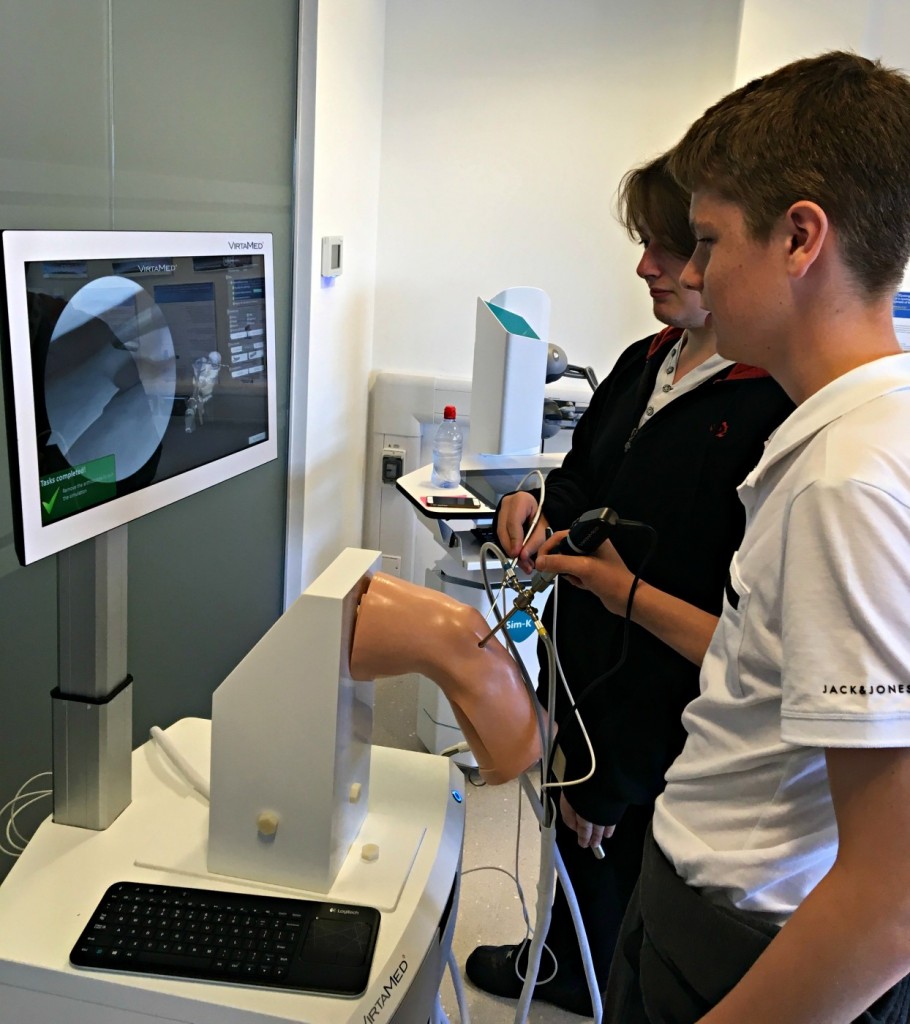 ary tests to be carried out for different aspects associated with balance, these include: anticipatory tests (when preparing for something to happen), reactive postural control (how you react to a change in motion), sensory orientation, and dynamic gait speeds (walking speeds and how they change in different circumstances). This was necessary in order to see how the effects of inspiratory muscle training effects balance over the course of 8 weeks.
ary tests to be carried out for different aspects associated with balance, these include: anticipatory tests (when preparing for something to happen), reactive postural control (how you react to a change in motion), sensory orientation, and dynamic gait speeds (walking speeds and how they change in different circumstances). This was necessary in order to see how the effects of inspiratory muscle training effects balance over the course of 8 weeks.
In terms of analysis and methods, one of the most interesting tests for us involved the breathing system and using a spirometer. This device was used to measure the Forced Vital Capacity (total air volume of the lungs), Forced Expiratory Volume (how much air a person can exhale in a forced breath), MIP (maximum pressure generated by inhalation against occluded airway), and the MEP (this is the same but is the pressure generated by exhaling). For us, this was particularly interesting because it allowed us to see how a spirometer works in a hands on experience and how the data is presented and analysed.
Another series of tests involved the PrimusRS, a very impressive machine. It served to be a challenge and required lots of problem solving to carry out the tests successfully. During our use of the PrimusRS we experienced the different processes that were needed to be carried out involving; calibration, setting up, creating templates, correcting motion to improve the results, and the analysis of the final results. This was an extraordinary piece of equipment as it allowed us to carry out endurance and isometric tests (strength tests) for both flexion, extension and rotation regarding the trunk muscles, and gave us different data including power of the muscles/ movement.
Finally, the most exciting and enjoyable session to carry out involved using Virtual Reality Simulators for knee arthroscopy (operations) that surgeons all over the world travel to see. The reason for this being the most enjoyable test/session was due to complexity behind machines that looked so simple, and it allowed us to carry out practise operations teaching you the motions and procedures that would be used in real life. Other fascinating features of the virtual simulator was the way in which it introduced us to the different textures of the bone structures and tissues by giving feedback involving vibrations and stiffness of the simulator drill/ saw as well as the screen display.
As well as all of these above tests, we also are aware of the protocols and ethics of the tests that we have carried out in the duration of the project, this allowed us to experience and build up our own picture of the research that needs to be carried out before conducting the actual investigation.
Whether you want to catch up on some reading without being disturbed or find somewhere to work collaboratively with research colleagues or your Faculty’s library team, the Library has lots to offer at this quiet time of the year. See our news item on the Staff Intranet for details about library services and facilities available to staff and researchers throughout the summer vacation.
 Congratulations to Dr. Pramod Regmi as the lead author of the paper ‘Informed consent in health research: challenges and barriers in low-and middle-income countries with specific reference to Nepal‘ [1]. Informed consent is a process whereby potential participants are genuinely informed about their role, risk and rights before they are enrolled in the study. Thus, ethics committees in most countries require ‘informed consent form’ as part of an ethics application which is reviewed before granting research ethics approval. Despite a significant increase in health research activity in low-and middle-income countries (LMICs) in recent years, only limited work has been done to address ethical concerns.
Congratulations to Dr. Pramod Regmi as the lead author of the paper ‘Informed consent in health research: challenges and barriers in low-and middle-income countries with specific reference to Nepal‘ [1]. Informed consent is a process whereby potential participants are genuinely informed about their role, risk and rights before they are enrolled in the study. Thus, ethics committees in most countries require ‘informed consent form’ as part of an ethics application which is reviewed before granting research ethics approval. Despite a significant increase in health research activity in low-and middle-income countries (LMICs) in recent years, only limited work has been done to address ethical concerns.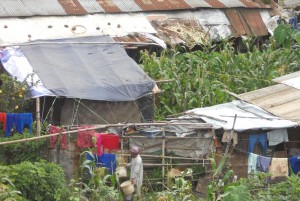
Most ethics committees in LMICs lack the authority and/or the capacity to monitor research in the field. This is important since not all research, particularly in LMICs region, complies with ethical principles, sometimes this is inadvertently or due to a lack of awareness of their importance in assuring proper research governance. With several examples from Nepal, this paper reflects on the steps required to obtain informed consents and highlights some of the major challenges and barriers to seeking informed consent from research participants. The authors offer some recommendations around how can we can promote and implement optimal informed consent taking process.
The paper will appear later this year in the international journal Developing World Bioethics (publisher: Wiley). Finally, just out of interest five out of six of the authors are graduates of the University of Aberdeen!
Prof. Edwin van Teijlingen
CMMPH
Reference:
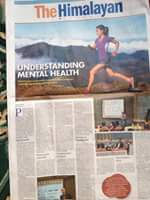
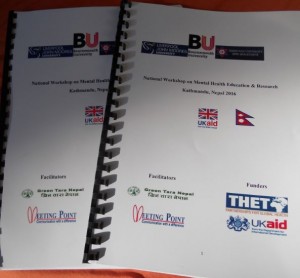 At the National Workshop on Mental Health Education & Research in Kathmandu organised by Tribhuvan University, Bournemouth University and Liverpool John Moores University last week we had quite a few television camera crews and journalists present. Sabitri Dhakal, one of the journalists from The Himalayan Times an English-language daily newspaper in Nepal, wrote a nice feature length article. This piece was based on interviews with BU Visiting Faculty Padam Simkhada and Prof. Edwin van Teijlingen conducted at our workshop. Her article with the title ‘Understanding Mental Health’ is available online.
At the National Workshop on Mental Health Education & Research in Kathmandu organised by Tribhuvan University, Bournemouth University and Liverpool John Moores University last week we had quite a few television camera crews and journalists present. Sabitri Dhakal, one of the journalists from The Himalayan Times an English-language daily newspaper in Nepal, wrote a nice feature length article. This piece was based on interviews with BU Visiting Faculty Padam Simkhada and Prof. Edwin van Teijlingen conducted at our workshop. Her article with the title ‘Understanding Mental Health’ is available online.
Mental health in pregnant women and new mothers is increasing recognised on the global health agenda. In Nepal mental health is generally a difficult to topic to discuss. THET, a London-based organisation, funded Bournemouth University, and Liverpool John Moores University in the UK and Tribhuvan University in Nepal to train community-based maternity 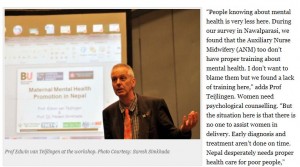 workers on issues around mental health. Thus far three groups of UK health and education experts have gone out to Nepal to train these communit maternity care providers, called Auxiliary Nurse Midwives (ANMs). ANMs, who are the key maternity service providers in rural birthing centres of Nepal, have received only 18 months of training and the training curriculum does not refer to dealing with mental health issues. The next group of volunteers is due to travel in September.
workers on issues around mental health. Thus far three groups of UK health and education experts have gone out to Nepal to train these communit maternity care providers, called Auxiliary Nurse Midwives (ANMs). ANMs, who are the key maternity service providers in rural birthing centres of Nepal, have received only 18 months of training and the training curriculum does not refer to dealing with mental health issues. The next group of volunteers is due to travel in September.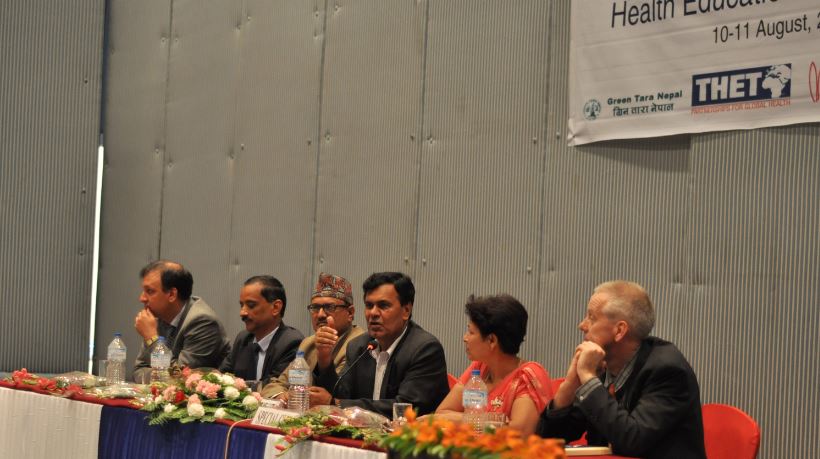
Prof. Edwin van Teijlingen
CMMPH
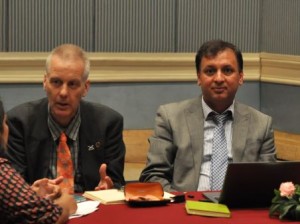 At a television interview this morning in Kathmandu I was asked how many papers I had published on health and health-related issues in Nepal. I told the interviewer from BTV Business that it was around 90 to a hundred. Coming back to Green Tara Nepal office I decide to update the list of papers on Nepal to make sure I had not lied too much on TV.
At a television interview this morning in Kathmandu I was asked how many papers I had published on health and health-related issues in Nepal. I told the interviewer from BTV Business that it was around 90 to a hundred. Coming back to Green Tara Nepal office I decide to update the list of papers on Nepal to make sure I had not lied too much on TV.
Adding up the papers, editorials and, to a lesser extent, book chapters I was pleasantly surprised that there were 25 on maternity care & midwifery, 18 on sexual & reproductive health, nine on infectious diseases, five on non-communicable diseases, six on nutrition & child health, three on mental health, two on migration and a further mixture of 38 on topics such as health systems, research methods, or health & education capacity building. If I have not double counted any of the papers that a grand total of 106. Most are co-authored with BU Visiting Faculty Prof.Padam Simkhada (from Liverpool John Moores University), many with PhD students conducting projects in Nepal and, more recently with BU post-doctoral fellow Dr. Pramod Regmi.
Prof. Edwin van Teijlingen
CMMPH
Reference (by topic)
Maternal & Neonatal Health & Midwifery
Sexual & Reproductive Health
Infectious diseases
Non-Communicable Diseases
Nutrition & Child Development
Mental Health
Migration / Occupational Health
Other (including: health systems, research methods, capacity building)